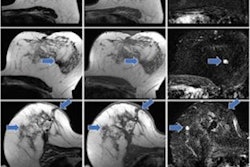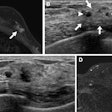Dear Women's Imaging Insider,
Breast imaging continues to become more personalized for patients, and in this edition's Insider Exclusive, we're highlighting research from a Swedish team that tested an image-based risk model that they say can help identify women who could benefit from supplemental screening.
In another story, we covered findings from a group from South Korea that show premenopausal women with a family history of breast cancer have a higher chance of having dense breasts and experience increasing breast density over time -- results that suggest a tailored screening strategy could help women who fall into this category.
Speaking of breast density, the U.S. Food and Drug Administration (FDA) recently amended its requirements mandating imaging facilities to report breast density information to patients. Read what FDA leaders and advocates had to say.
In other news, a study of over 1 million women found that digital breast tomosynthesis (DBT) shows improved screening outcomes over those seen with only digital mammography. Researchers reported that DBT had lower recall rates and higher cancer detection.
Plus, check out the following recent women's imaging stories:
- Spanish researchers reported that Doppler ultrasound findings indicate several common placental differences in pregnant women who test positive for SARS-CoV-2.
- Machine learning could make way for reducing the contrast dose needed for breast MRI, findings suggest.
- A team from Washington University in St. Louis developed a non-invasive imaging tool that can create real-time, 3D images and maps using MRI of contractions during labor.
- Researchers from Weill Cornell Medicine reported that ultrasound shows that axillary lymphadenopathy after a COVID-19 vaccine booster dose has shorter average resolution time than after initial vaccination.
Find more articles like these by regularly visiting your Women's Imaging community!




















